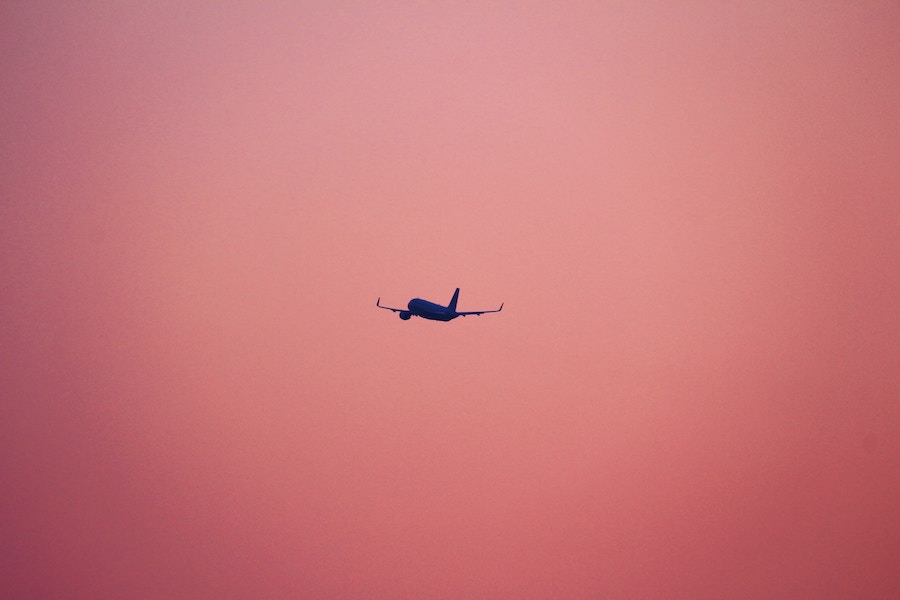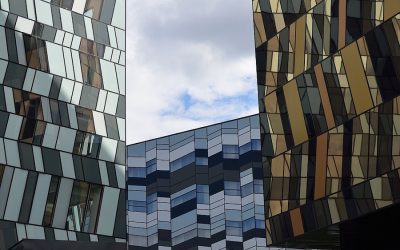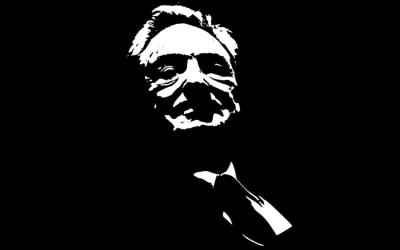Science and higher education in exile are trying to do the (almost) impossible.
Dmitry Dubrovsky
Photo: Opportunities to leave—and, moreover, to find work abroad—vary greatly for different categories of scientists. Photo by Raychan on Unsplash.
The outbreak of war was a huge blow for scientists who had, in one way or another, tied their professional life to Russia, and an added impetus to those who were already considering leaving the country, whether temporarily or on a permanent basis.
Migration Aspirations
An online survey conducted by the little-known institute Decisive Voice LLC in the summer of 2022 showed a significant increase in the percentage of people willing to leave the country, especially among young researchers. Notwithstanding the clear ideological bent of the study, which aimed to determine “the readiness to mobilize of the Russian sciences” and identify those for whom “the thirteen-year onslaught of cosmopolitanism has blurred the lines between ‘us and them,’” these trends were nonetheless confirmed.
Migration aspirations are especially high in large scientific centers—in the Novosibirsk region, St. Petersburg, and Moscow. The majority of those who remain are quite willing to continue scientific cooperation with countries declared “unfriendly” by Russia.
One obvious problem is external factors. The fact that the leadership of many Russian universities have voiced direct support for the war has led to a general academic boycott of Russian sciences. Given that almost all Russian scientists are affiliated with state institutions, the prospect of a total boycott of those who remain may be an additional factor impelling them to flee.
For practitioners of the social and humanitarian sciences, another stimulus may be the sharp increase in censorship and forced self-censorship, as well as the introduction of clearly ideological courses and programs.
The Strategies of Those Leaving
The strategy of scientists who decide to relocate depends, to a certain extent, on how planned and сonvenient their relocation is.
Some are fleeing war and political repression of any form of anti-war protest. Others are leaving quietly, and even sometimes continue to work remotely with various Russian research and educational institutions, but without advertising this.
At the same time, for different categories of scientists, the opportunities to leave—and, moreover, to find work abroad—vary greatly.
Work. For scientists with English or another European language as a working language, the opportunities are obviously more numerous. International contacts and previous experience from internships abroad both greatly influence the decision to leave and help improve job prospects.
Visas. Experience shows that relocating scientists are running into problems, as many countries have decided not to issue visas to Russian citizens, including work or study visas.
This has caused many people to move to visa-free countries—primarily Georgia, Armenia, and Kazakhstan—so that they can then try to move from there to Europe, the US or Canada.
Undergrad and grad students. Many undergrad and grad students trying to escape the warring country in order to continue working have a chance to do so.
- The Bayhost Foundation, which provides scholarships for studying in Bavaria, rejected all students from Russia at the beginning of March 2022, citing the decision of the Bavarian government to terminate all programs with Russian institutions. It then revised its decision the following year (2023).
- The German academic foundation DAAD, although it has cut off all ties with official Russian structures, has continued to accept individual applications throughout this period.
At the same time, a number of European research institutes refuse to organize internships for young researchers from Russia, sometimes stating that cooperation with Russian scientists on a personal level is also impossible.
The “Refugee Precariat”
Support programs do not solve the problem of emigration. They are mainly aimed at academic refugees—those who have been forced to leave due to political persecution. These programs are also incapable of helping everyone in need.
Those who are able to “plan” their relocation must not only find jobs, but also project into the near future—and it’s simply impossible to plan in advance, given that most positions available to them are temporary. A kind of “refugee precariat” is emerging—a class of socially unsettled people for whom short-term contracts have become the main form of work and long-term planning is simply impossible.
The Russian Language
The situation is made even worse by the fact that Russian is starting to be perceived not as the language of Ivan Pavlov and Dmitry Mendeleev, but as the language of Bucha and Mariupol. Within the framework of anti-colonial criticism, for example, the question is raised of replacing Russian with Ukrainian as the lingua franca of Slavic studies.
Although no one is “canceling” the Russian language, the sharp deterioration in international relations cannot help but deal a strong blow to the prospects of studying Russia and the Russian language abroad. The number of economic and cultural contacts with Western countries has fallen to Cold War levels. It is unlikely that many people will want to link their professional careers to a pariah country.
At the same time, the “turn to the East” is changing Russian state policy about the Russian language by creating new departments and institutes in China, India, and Vietnam. There, with Russia’s support, they plan to organize Russian-language dual-degree programs.
Thus, on the one hand, the Russian language is interpreted by some as the “language of aggression” in the context of education and science outside Russia. On the other hand, the language is being used by the Russian political regime to support its new foreign policy course of “pivoting to the East”—an attempt to emulate Western countries’ policies of promoting education in European languages, foreign campuses, and dual degrees.
It is not yet clear how successful this strategy will be.
Russian Institutions in Exile
The teachers and students who have left are trying to maintain the image of Russian as the language of free science and education.
This is true, first and foremost, of the Free University, created before the start of the war and recently deemed an “undesirable organization.” It united students and faculty who left with those who remained through free lectures and workshops for more than a hundred faculty members. In fact, it was the university’s anti-war stance—it was seemingly the only Russian-speaking institution that openly opposed the war—as well as the independence and critical thinking developed throughout its courses that caused it to be banned on the territory of the Russian Federation.
The Free University is not the only association representing Russian education and science in exile. Another important project, this time an English-speaking university, is the University of New Europe (UNE). Its goal is to create “an inclusive, globally oriented space for knowledge and discussion,” primarily for scientists in Ukraine and Russia affected by the war.
The necessity and importance of scientific communication and free scientific exchange have led to the emergence of a number of network projects in the field of social and humanitarian knowledge outside of Russia. Through the internet, they are trying to maintain communication between researchers who have left the country and those who have remained.
- The anti-war project Academic Bridges, founded by emigrant scientists, holds conferences, presentations, and roundtables online. Researchers within various disciplines are trying to comprehend the ongoing catastrophe.
- Interestingly, the need to preserve dialogue has led to similar naming practices. An INION RAN project founded within the borders of Russia in 2023 shares the same name: Academic Bridges. The project aims to maintain Russian contacts with the scientific world.
- The Social Researchers Across Borders network was formed after the onset of the war with the aim of “…collaboration, support for transnational academic activity and solidarity.”
It is not difficult to draw direct analogies to such projects as, for example, Sociologists Without Borders, which are also aimed at developing public sociology and solidarity in the international scientific community.
A huge source of support comes from projects that utilize the potential both of those Russian academics who have left and of European institutions. This autumn, the philosophy department at Charles University in Prague is launching the Boris Nemtsov Russian Studies Master’s Program. Despite frequent discussions about “canceling” Russian, the curriculum will be taught in Russian and plans to train specialists in contemporary Russian politics and society.
Those Who Have Left Are Trying to Unite
The need to coordinate between various projects, assist needy scientists, and develop free Russian sciences and education in exile led to the drafting of Academic Solidarity: A Declaration to Establish the Association of Russian Scientists and Teachers in Europe. It views its main tasks as:
- establishing communication between academic groups and projects
- campaigning to support those whose academic rights and freedoms are being violated in Russia
- cooperating with international foundations and organizations to help Russian teachers and students abroad.
* * *
Russian sciences and higher education are trying to do the (almost) impossible:
- preserve the potential of free creativity and education, at least in terms of emigration
- remain part of the international community
- and, at the same time, preserve Russian as a language of academic freedom.





0 Comments